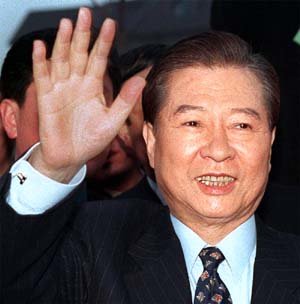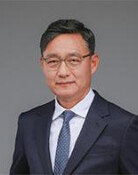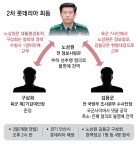Kim Wins Nobel Peace Prize; garnering recognition for his efforts for peace, human rights, democracy
Kim Wins Nobel Peace Prize; garnering recognition for his efforts for peace, human rights, democracy
Posted October. 13, 2000 18:00,

President Kim Dae-Jung has been selected winner of the 2000 Nobel Peace Prize.
The Norwegian Nobel Committee announced at 11 a. m. Friday that it had chosen President Kim as the winner in recognition of his contributions to democratization of Korea, the improvement in the inter-Korean relationship, and peace in the Northeast Asian region.
Secretary general of the Nobel Foundation, speaking to news reporters coming from the world over, said that his Oslo Nobel Laboratory had selected the South Korean president as the Nobel Peace Prize laureate for his pro-democracy movement, tension reduction through his Sunshine Policy of engaging with North Korea and his contributions to peace and security in the Northeast Asian region.
President Kim won the Nobel prize following he was recommended as a candidate for 14 times in a row, since Nelson Mandela, former South African president, recommended Kim as the Nobel Peace Prize candidate in 1987.
The prize awarding ceremony will be held Dec. 12, the day Nobel Peace Prize founder, Alfred Nobel passed away, at Oslo University with Norwegian king attending. As supplementary prizes, Kim will receive $960,000 and gold medal with Nobel`s portrait inscribed.
One hundred years after it was established, the Nobel prize has been brought to Korea. Of all the Nobel prizes, the prime, that is, the Peace Prize! Many here have had a slim hope of gaining one at this time of year only to find they were getting nowhere. It has been a prize the nation continued to wish for in vain.
That the Nobel Peace Prize went to President Kim Dae-Jung carries a special meaning for Korea and Koreans. It represents the international recognition of their national identity. Through the ordeals of history the Korean people have not lost their unique tradition and culture. Korea for what it is worth, endeavored to realize the universal value of humanity peace as a member of the world community. Now came the judgment and reward.
The scourges of Japan`s colonial rule, division of the land and war have wounded and withered Koreans; they have been accustomed to disparaging themselves. The good news is enough to recover their national pride. The Peace Prize does credit to the sustained policy of President Kim to seek reconciliation and cooperation from North Korea in the cause of peace on the Korean Peninsula and to his long-lasting and untiring quest for democratization and human rights.
The world community expressed its endorsement for and confidence in his career, devoted to reconciliation and tolerance, which led to a peaceful change of government in Korea and the joint inter-Korean declaration of June 15.
Seoul National University Professor Yun Yeong-Gwan supported the international stamp of approval placed on Kim¡¯s role of initiating and completing the process of removing the last remaining front of the 50-year Cold War and strengthening peace in Northeast Asia. Detente between the two Koreas is the essential element of this new order, Yun said.
The awarding of the Peace Prize to President Kim will go a long way toward bolstering the voice of Korea in addressing the inter-Korean relationship and dealing with international politics in this part of the world. Inasmuch as international politics does not depend on physical power only, Prof. Yun argued, the Nobel Prize will lend greater weight to the prestige of Korea, thus strengthening its leadership and enabling it to take the initiative in discouraging the arms race and establishing peace in Northeast Asia.
The honor is also expected to boost a favorable atmosphere for soliciting international support in exploring diverse sources of financial aid for North Korea. Specialists view that the enhanced stature of Kim is certain to prompt Pyongyang to appreciate and accept the overwhelming drift of the time toward conciliation and cooperation among nations. At home, the President is in a better position to appeal for increased participation of the people in helping North Korea thanks to his reinforced legitimacy. Internal harmony within South Korean society, which has emerged as a no less important factor, than improved ties with the North is likely to be consolidated so as to ensure an integrated national opinion and better relations between the government and the opposition, said Lee Jeong-Hi, a political science professor at Hankook University of Foreign Studies.
On second thought, the Nobel Peace Prize, compared with other Nobel prizes, may well be deemed not so much as a recognition of achievement already made; it should rather be regarded as motivation for continued endeavors and resolve for the future. For this reason, leading figures in many sectors believe the years following the prize award may be more important. Those words of praise and admiration to be showered on the Nobel laureate impose a heavy burden upon President Kim. Controversies over the eligibility of President Kim for the prize have raged between the government party and the opposition party. Behind the apparent statement of welcome made by the opposition lie widespread expectations that the prizewinner is supposed to embrace the opposition and work harder to achieve national unity. This is what President Kim must keep in mind in the wake of the Nobel Prize saga.
Headline News
- Joint investigation headquarters asks Yoon to appear at the investigation office
- KDIC colonel: Cable ties and hoods to control NEC staff were prepared
- Results of real estate development diverged by accessibility to Gangnam
- New budget proposal reflecting Trump’s demand rejected
- Son Heung-min scores winning corner kick







